
The Legendary David J (Bauhaus/Love and Rockets) has just released a Kickstarter funded album called “An Eclipse of Ships”, and has been touring with a band The Gentleman Thieves. We were curious about his muscial roots and inspirations, and had a chance to chat with him about this and more…
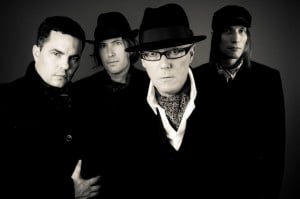
Post-Punk: What was your inspiration for becoming a musician?
David J: It really goes back to the early 70’s and being exposed to David Bowie on TV. That was the spark. It didn’t enter my mind to become a musician at that point, I was just captivated by this creature doing “Starman” on English TV. Actually, I bought Hunky Dory before I’d heard Ziggy Stardust, and I wasn’t aware that it was the same artist. There used to be this show called Old Grey Whistle Test and they just played tracks and they’d have an old cartoon from the 1920s. I heard “Andy Warhol” and loved that and the next day went out and bought Hunky Dory and fell in love with that record. Apart from the images on the cover, I’d never seen Bowie and when he came on TV performing from the Ziggy album I went out and got that. I then put two and two together and saw it was the same name, David Bowie. I had a friend who had a guitar and he had worked out the chords to “Starman.” I said, what do you mean worked out the chords? It was incomprehensible to me, I didn’t understand how music worked. And so he gets out his guitar and strums the chords and I thought that was it. My god, you could actually make something approximate this music yourself by just putting your fingers into these weird shapes and pressing down really hard. So that was it. From then on I wanted to be a musician.
Post-Punk: It seemed like out of the box you had a reggae and ska influence on your bass playing.
David J: About the same time, actually before that epiphany, I was going to a youth club which at one point in the evening turned into a skinhead discotheque. I was about 13 and my friends and I were intrigued about what happened at the youth club after dark, so we decided to stay behind one night. We just snuck in and went behind the curtain and we saw this whole event unravel. These skinheads came in and they were playing very loud reggae music and it just did something to me. It was wonderful. I basically sort of became not a skinhead, but a proto-suede head. I’d never have had the complete skinhead shaved head, but I had the haircut that I’ve had for the last 35 years. I later found out that when the skins became suedes they would say – oh you’re a suede, you’re one of the first suede’s, mate. But I was really into the whole style, the clothes and everything, and the music you could only hear in those places because they would have these records from Jamaica that you couldn’t buy. Some of them you could buy that were on the Trojan label and I indeed did buy those, they were the first records I ever bought. At that time I didn’t want to be a musician, I couldn’t comprehend how you made these sounds. I hadn’t made that transition. It was just this magical alchemy that happened in this dark place. And because the skinheads were much older than us they sort of tolerated us, they were sort of amused by us. They would get us to drink beer and found that very amusing. It was a real community as well. It was the first time that I’d ever been exposed to a community that was centered around music. It wasn’t like as the skinheads became later on, and certainly in america, it wasn’t a racist thing. It wasn’t a white supremacy thing at that time. I mean the music was all black music anyway. They were hardcore guys, like a tough gang. This guy who turned me onto playing guitar, Chris his name was, there were about five of us who wanted to be in the band, and everybody wanted to be the lead guitarist. At this point I’d sussed out that the sound that I really loved on those old reggae records was the bass. But at that point I had never tried to play one. Nobody wanted to be the bass player so I just said I’ll be the bass player, and took the top two strings off my cheap electric guitar and boosted up the bass and turned it up as loud as i could, and that was my first bass guitar and I never really looked back.
Post-Punk: You seem to have a gay 90’s to Weimar influence on your songwriting and I was wondering where that came from?
David J: My first exposure to cabaret as such was through the film Cabaret when I was a kid. I was about 12, and I probably didn’t understand the social or political context of that film but just the imagery really made an impression, and the music, and I was aware that there was some skewered quality to it. I had a friend who turned me onto Kurt Weill and the song spheres they did with Bertolt Brecht. Once I discovered Weill I went back and looked into that whole genre and it’s so rich and I’m still discovering it. A big component in this discovery was when I met somebody who was actually in Weimar in the 20s who took part in a cabaret, who was a former student of the original Bauhaus in Weimar – Rene Halkett. He wrote to John Peel when he was playing Bauhaus’ first record, Bela Lugosi’s Dead, and Rene was then in his 70’s and was an avid listener to John Peels show. He heard this and was intrigued that this band of young upstarts had usurped the name Bauhaus and he wrote to John Peel asking for more information. Peel sent me the letter and I was just amazed to be in contact with somebody from that time, so I wrote to Rene and we struck up this correspondence and in the end would meet up and I’d go down and visit him in his little cottage in Cornwall. We ended up making a record together, which was his poetry that I put to music. It was one of the first releases on 4AD. I would just go down and he would enthrall me with these stories of him appearing in these cabaret clubs in Weimar and dancing on the piano and letting off revolvers in the club and this whole sort of barbarous cabaret scene that he was intrinsically involved in. He met Bertolt Brecht and people like that, the surrealists came through and his teachers were Kandinsky and it was just amazing to have a friend from that time so that gave me a real insight, to actually be communicating with somebody that was there. So I think it’s very interesting how that punk cabaret scene spearheaded by the Dresden Dolls has come through. It touches on something that’s very necessary, especially in times of political unrest, there’s a real need for it. It’s fulfilling the same need that it was fulfilling back in pre-war Germany. It’s very vital.
Post-Punk: I am hoping that the youth will get stirred up and wake up to what’s going on in the world through the music and through the community that it’s building.
David J: Yeah, well that is happening. And of course now there’s the internet there to link it all, which was never there before, so it does become a burgeoning and growing scene as opposed to back in the 20s when it was very isolated.
Post-Punk: I heard you’re a big fan of Marcel Duchamp, and I wonder if that ties into your love of andy warhol because they had similar ideas?
David J: Yeah, I understand what you’re saying. There’s a sensibility there that those two artists share that is appealing, and of course individually they had their own things to say that were not connected with eachother.
Post-Punk: I was thinking of the aspect of deconstructing art like dada and things like that, it all seems to be a common theme I see from you in various mediums.
David J: Well when you deconstruct something you learn how it works. In a way. I suppose the function of deconstruction is to break something down so you can put it back together in a more interesting form.
Post-Punk: Going back to political unrest and things like that, I wanted to ask you about working with Alan Moore. The Sinister Ducks and then V For Vendetta and you did music for his writing. His work is getting very popular, especially with the whole Guy Fawkes Anonymous symbolism now and I wonder what your thoughts were on that.
David J: Well Alan’s always been very disenchanted with the way that his work has been interpreted in film and I don’t blame him that it’s been done a pretty great disservice. None of those films have ever come up to scratch. They can’t touch on the depth and artistry of the original pieces of work. I feel very privileged to have worked with Alan in the past. I met Alan in 1977, before Bauhaus. There was an ad in the paper for his band, the Emperors of Ice Cream. New music night and day was the ad, and they were asking for co-conspirators. It didn’t even say it was a band, I was just intrigued by it, and I met up with Alex Green who was a member and who ended up playing sax with me. He introduced me to Alan and took me down in this flat round the back of the old racecourse. Alan had a really twisted and detuned guitar and Alex was wailing away on the sax. It was like discovering the beat generation and I really wanted to be part of that. Alan was amazing and not famous at that time. But I knew he would be. In fact I went home and wrote about the whole thing and I wrote – This is gonna go somewhere this little scene that’s happening, and this one guy, Alan Moore, is gonna be something special.
Post-Punk: Given the popularity of the film adaptations, even though they’re not true to the source, people will pick up his comics and read them.
David J: That’s what one would hope, absolutely. He has an amazing mind.
Post-Punk: Can you tell me about Silver for Gold (The Odyssey of Edie Sedgwick)?
David J: Yeah well it’s quite an avant garde interpretation of the story. It’s not a straightforward biopic.
Post-Punk: That’s the only way worth telling the story.
David J: Yeah it’s very mythic. It tells the story as myth. I see Edie as Persephone and it was about her journey into the underworld and she consorts with various mythic entities. They relate to people in her life, but the story is told in mythic terms.
Post-Punk: Going back to Weimar and the 20’s, there are many successful 1920’s events popping up these days. Any that you enjoy?
David J: Do you know about Bricktops?
Post-Punk: No. What is it?
David J: Oh it was fantastic, it was a regular weekly club in the Russian quarter of Los Angeles, in Santa Monica, and it was hosted by Vaginal Davis – a 7 foot tall black drag queen. Highly educated, a force of nature, a kind of sacred monster. And she would hold this party Bricktops, it was a speakeasy, and there’d be a theme every week. They’d have the most amazing collection of individuals there. And the entertainment was incredible and Vag would do a turn with the house pianist. They would do this double act which was just bizarre and hilarious.
Post-Punk: Man I wish I could have seen that.
David J: Oh it was really something special. The only music they played, they had a DJ Pirate Jenny, and she’d just spin exclusively from the 1920’s.
For more info and to purchase “An Eclipse of Ships” visit David J’s Official Band Camp site here

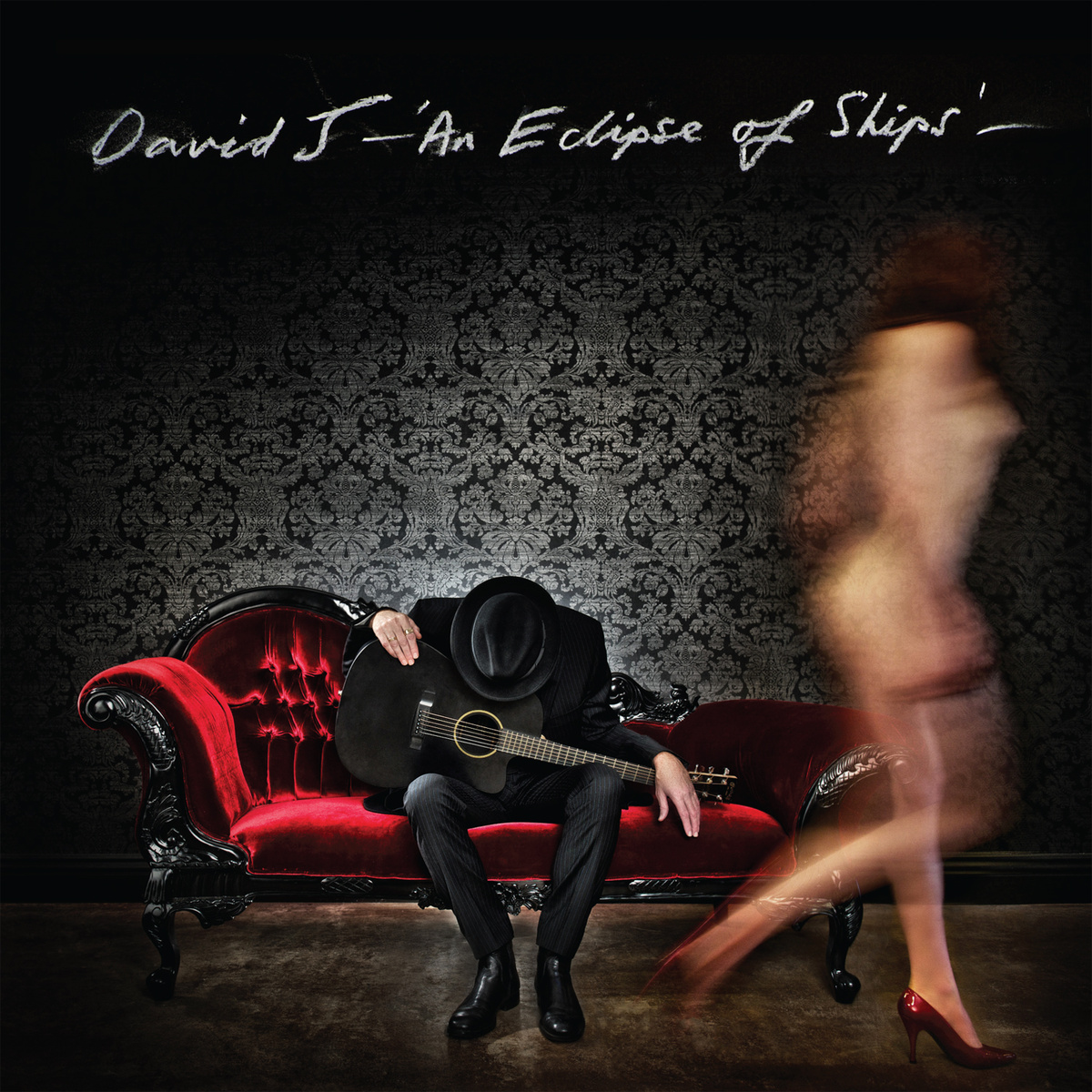

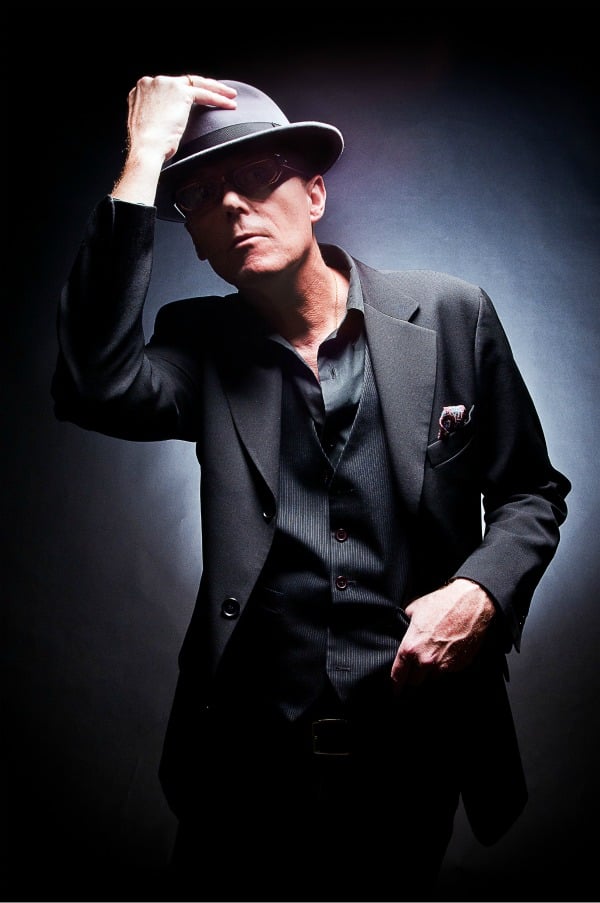
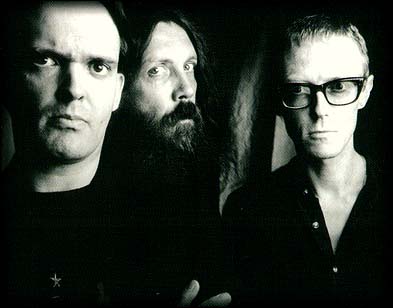
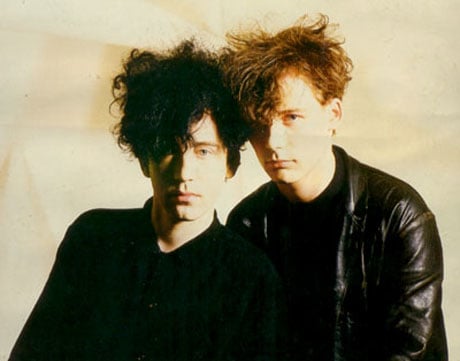





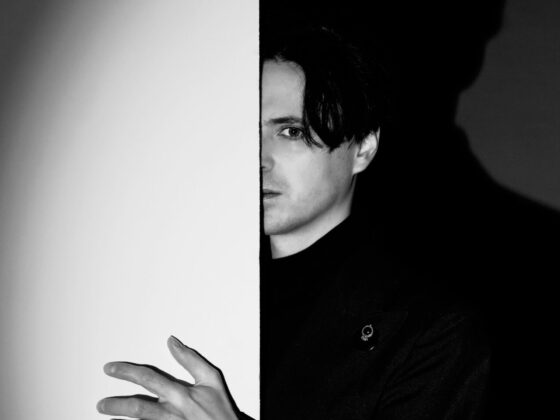

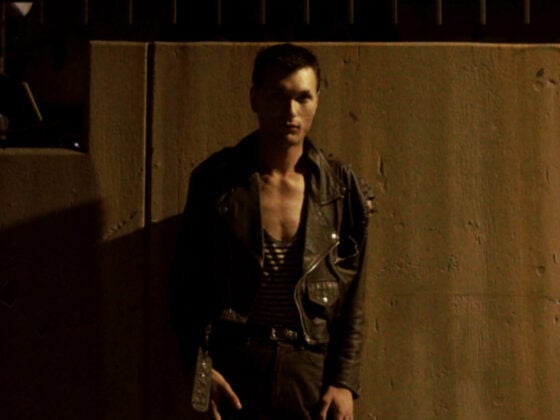
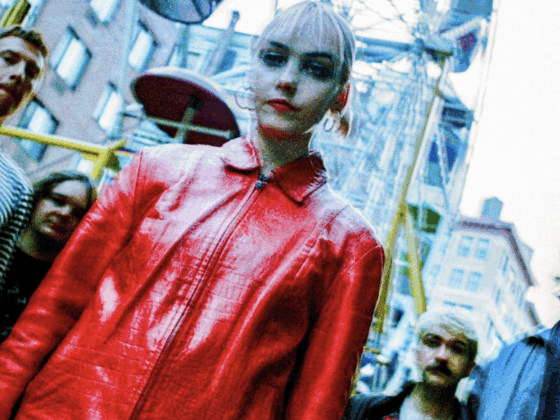
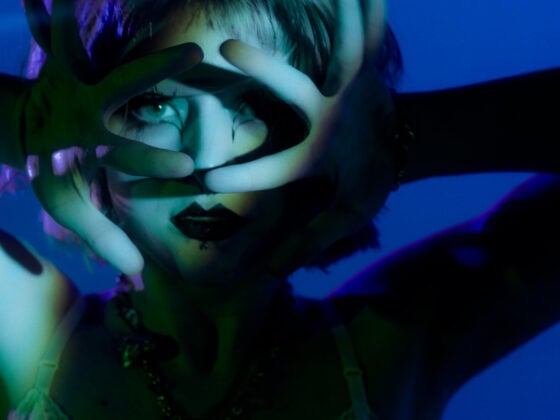

 Or via:
Or via: